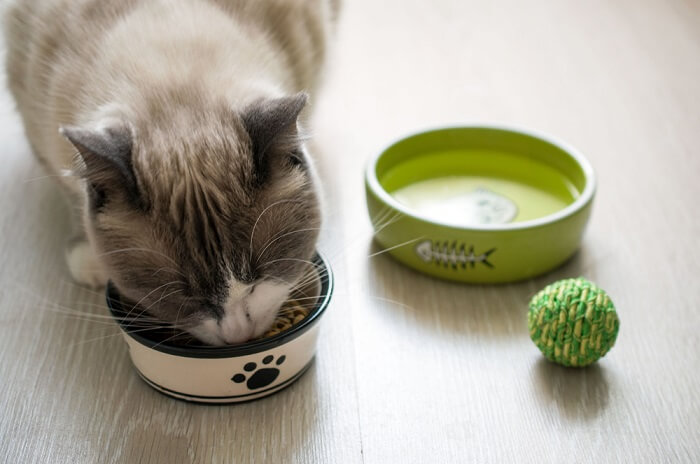
If you are worried that your cat is itching and scratching or has irritated skin or an upset stomach, it is important to know that cats can suffer from allergies just like dogs and humans.
Allergies in cats can be from allergens in the environment or in their food. While environmental allergies can be a nuisance to treat in cats, this article focuses on food allergies and how to diagnose them through an elimination diet.
What Are Food Allergies?
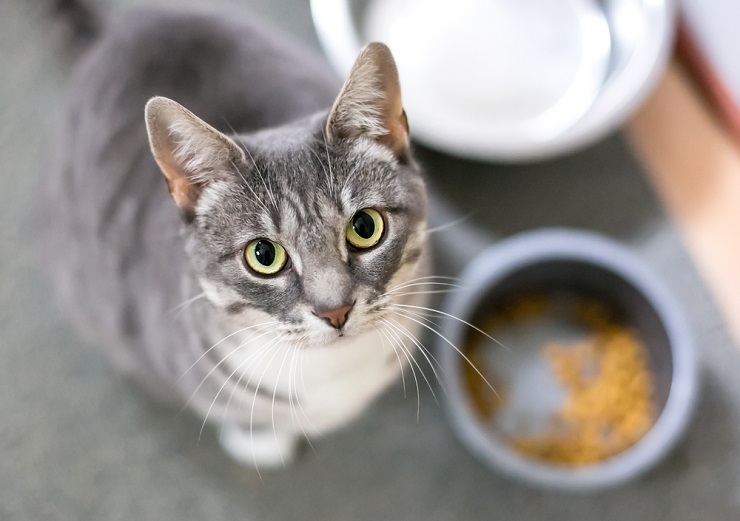
Food allergies, also known as food hypersensitivities, food intolerances, or adverse food reactions, are relatively uncommon and affect approximately 1% of all dogs and cats.
About 1-10% of cats with skin or ear disorders truly have a food allergy and this can be seen in cats of any age, breed, or sex.
A food allergy is an adverse immune response incited by becoming exposed to a certain food substance. Food reactions can take some time to build up in the body and cause a clinical issue. The most common symptoms include itching, ear and skin infections, and gastrointestinal upset such as vomiting, diarrhea, gas, and bloating.
Most food allergies are caused by the main protein source in a diet such as meat, eggs, or dairy. Rarely will a food reaction come from a carbohydrate source such as wheat, barley, or soy. In cats, some of the most common foods to cause a food allergy include beef, dairy, and fish.
Most cats with a food allergy will have symptoms that are year-round as opposed to seasonal allergies which are more likely to be from an environmental allergen.
Your veterinarian will work with you and your cat to determine what they are allergic to and how to best treat their symptoms. They may perform various tests and treatments and ultimately if these are otherwise unsuccessful, if your veterinarian thinks your cat has a food allergy, they will direct you through an elimination diet trial.
What Is An Elimination Diet?

An elimination diet is the only way to accurately diagnose a food allergy. In short, it is the process of elimination through various ingredients, mainly protein sources, that can cause food allergies to determine what specifically, your cat is allergic to in their food.
It is important to select a protein source for the elimination diet that the cat has never had before. This includes in their treats, wet food, table scraps, or having access to outdoors. There are three types of elimination diets that will be explained in more detail, a novel protein diet, a hydrolyzed protein diet, and a home-cooked diet.
During an elimination diet trial, you will feed your cat one of these hypoallergenic diets strictly for anywhere from eight to twelve weeks. Sometimes the trial is shorter and sometimes it is longer, even up to fourteen weeks.
How To Do An Elimination Diet for Cats
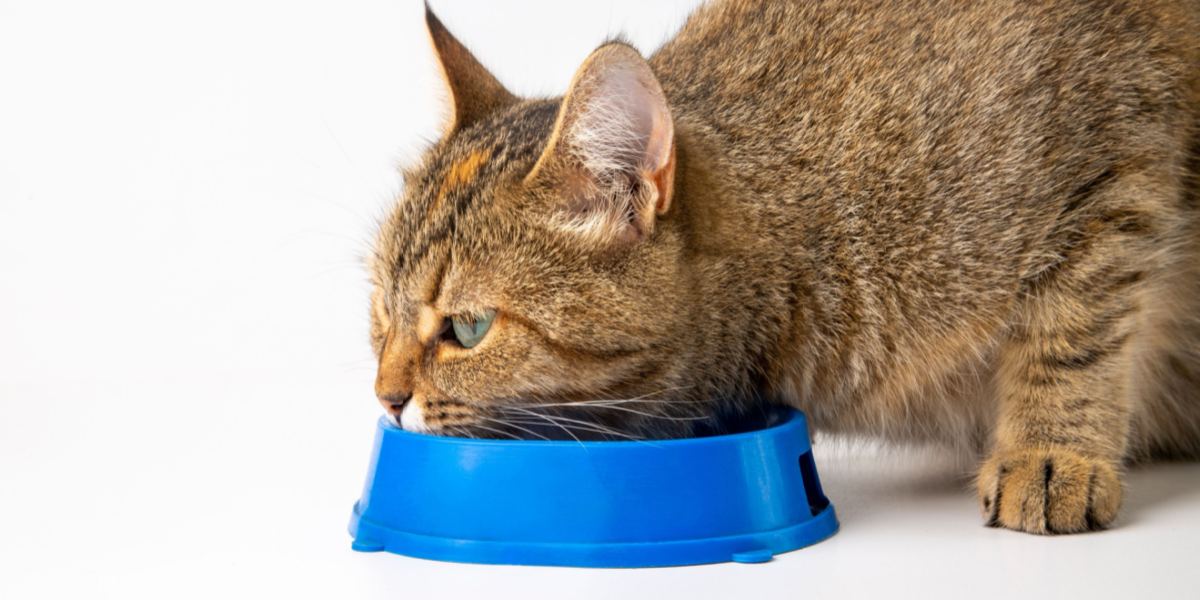
While some are more specific and say there are four phases to an elimination diet, there are two main phases that are most important, the Elimination Phase and the Challenge Phase.
Elimination Phase
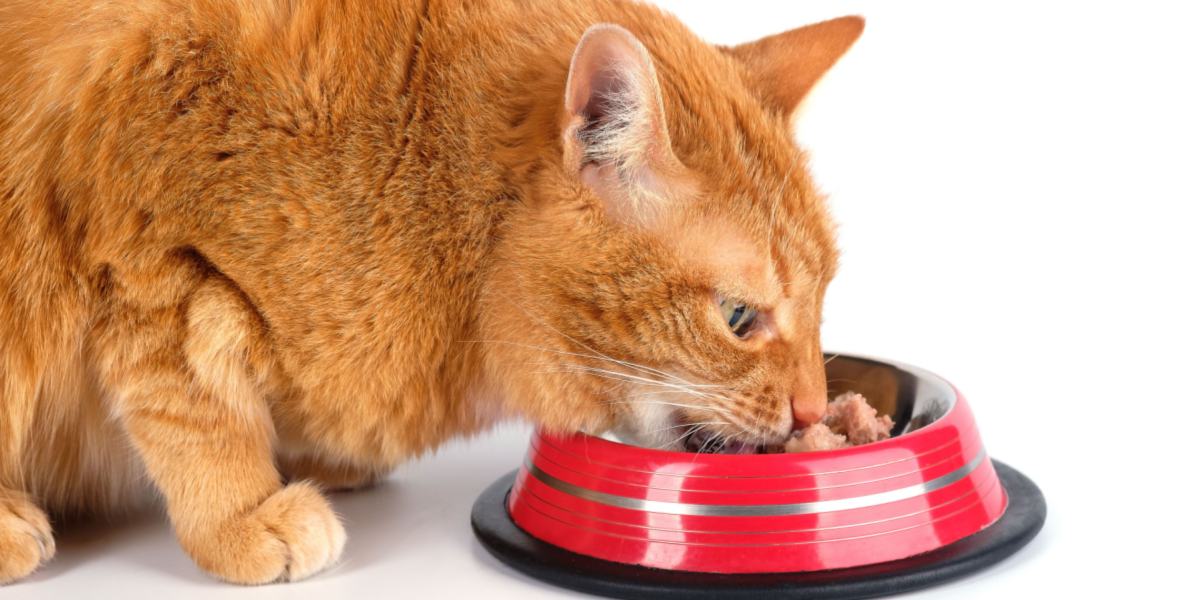
The Elimination Phase involves strictly feeding the trial diet for up to twelve weeks, making sure to consider flavored medications, preventatives, treats, and table scrapes – these must be within the trial diet ingredients. During the trial period, you must watch for your cat’s clinical signs to be reduced while they are on the new food.
This means improvement in skin and ear infections, less itching and scratching, and improved gastrointestinal symptoms. When this improvement is seen and symptoms eliminated, some decide to stop here and continue feeding the trial diet indefinitely, but to confirm the food allergy you must move on to phase 2.
Challenge Phase
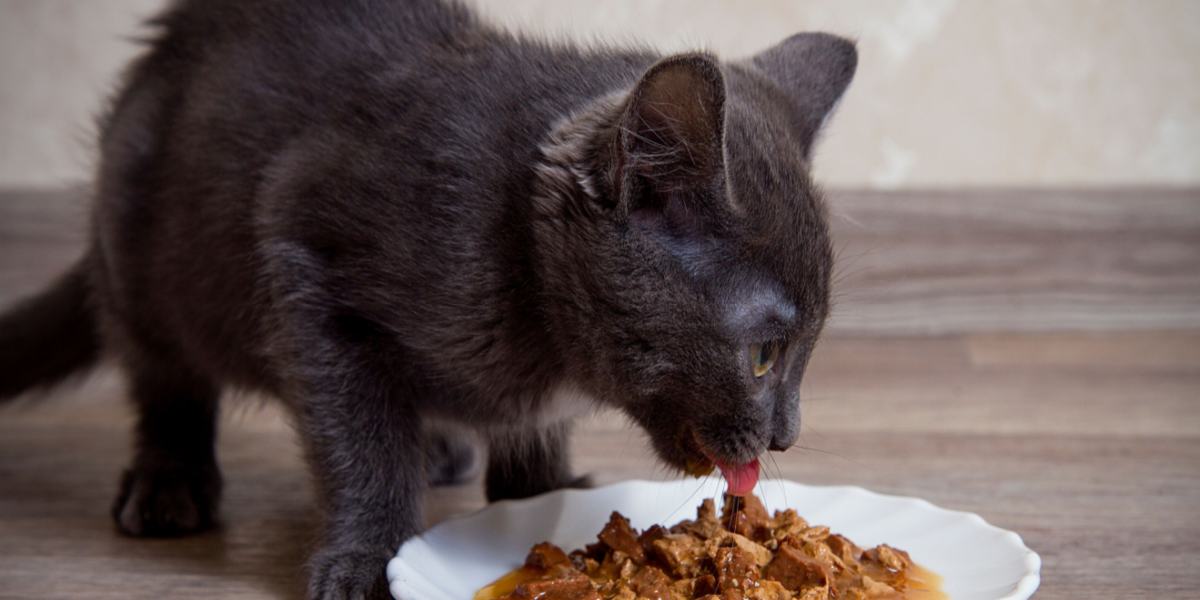
The Challenge Phase involves reintroducing your cat’s previous diet and watching for the recurrence of their symptoms. Usually the clinical signs come back after a few days and if they do, you have confirmed the food allergy.
Signs Your Cat May Benefit From An Elimination Diet
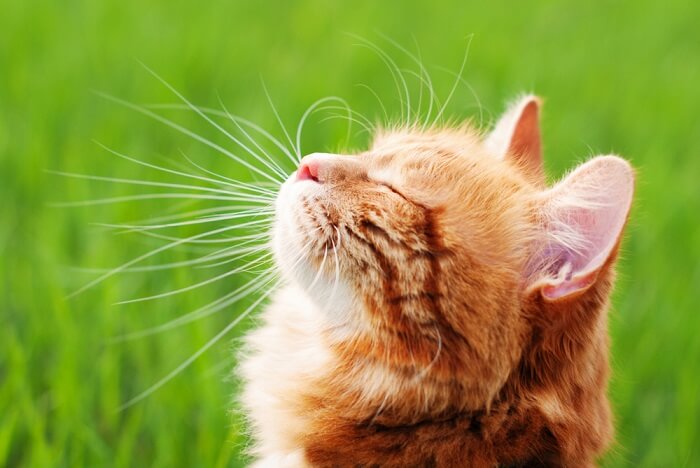
Your cat may need an elimination diet if they show signs of food allergies.
Your cat might benefit from an elimination diet if they have signs of allergies such as itching, scratching, excessive licking, hair loss, skin infections (dermatitis), ear infections (otitis), vomiting, diarrhea, excessive gas, or bloating. If these symptoms aren’t relieved through traditional treatments or by treating for environmental allergies, then your veterinarian might consider starting the elimination diet to see if your cat is suffering from a food allergy.
It is important that your veterinarian rules out other more common causes of allergies and skin infections in your cat before starting a diet trial. Other more common causes include flea allergies, external parasites, contact dermatitis, and environmental allergies.
Types Of Elimination Diets
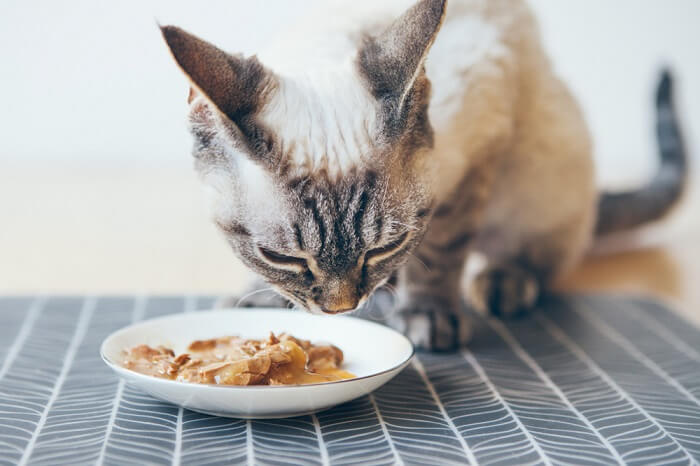
There are three main types of elimination diets for cats.
There are three types of elimination diets for cats. These include a novel protein diet, a hydrolyzed protein diet, and a home-cooked diet.
Novel Protein Diets
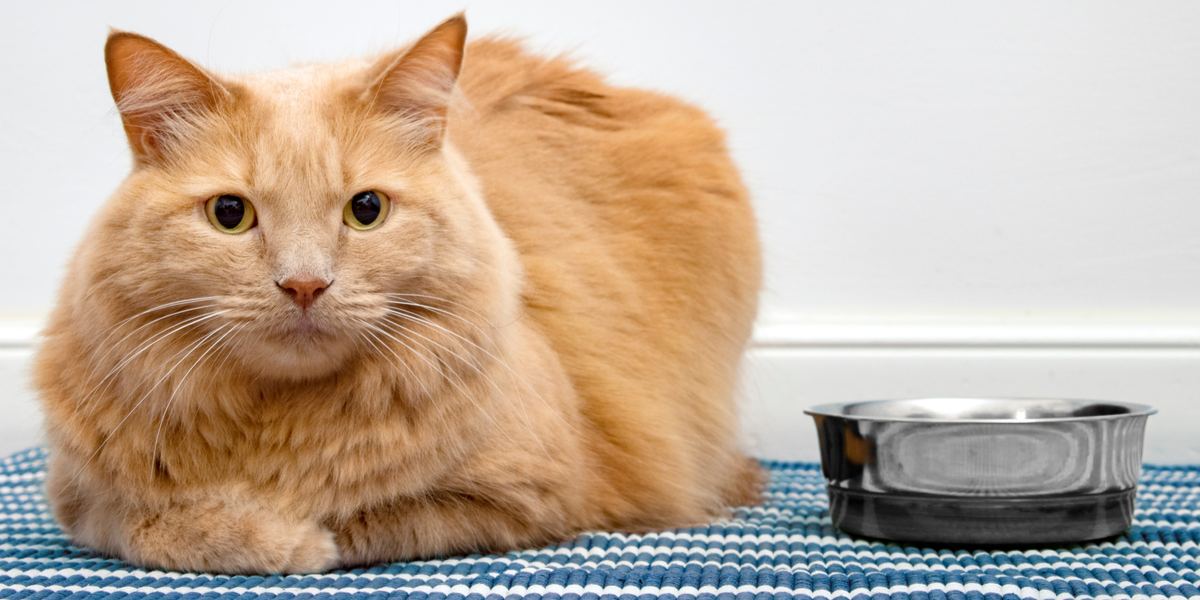
Novel Protein Diets are diets that are formulated with protein and carbohydrate sources that are not commonly found in typical off-the-shelf cat foods and that your cat has never been exposed to before. Ideally, these diets are highly palatable for cats and come in both wet and dry formulations.
The most common ingredients for a novel protein cat food include rabbit, venison, kangaroo, and duck. The novel protein diet is a diet that is novel to your cat specifically. It must contain a protein source that your cat has never eaten before.
That is what makes it novel, or new to them. So, if your cat has never had rabbit in their food, treats, or outside, then rabbit might be a good diet to try. However, if you think there is a chance your cat has ever eaten anything with rabbit in it, you will need to choose a different novel protein diet.
There are novel protein diets that can be found over the counter. You should use caution with these diets as there may not be as strict of regulations about what goes into the food with over-the-counter diets. You should be careful to inspect each ingredient thoroughly.
There are many veterinary formulated novel protein diets to choose from as well. These will require a prescription from your veterinarian and typically have an in-depth testing regimen.
It is important when choosing a novel protein diet, that you take time to go through an in-depth diet history of your cat and note all food ingredients they have consumed.
Keep in mind, this may not be fully known if your cat was a rescued stray, adopted, had or has free access to the outdoors, or had a previous home. If there is a possibility your cat could have had some of these novel proteins, it might be best to choose a different type of elimination diet.
Hydrolyzed Diets
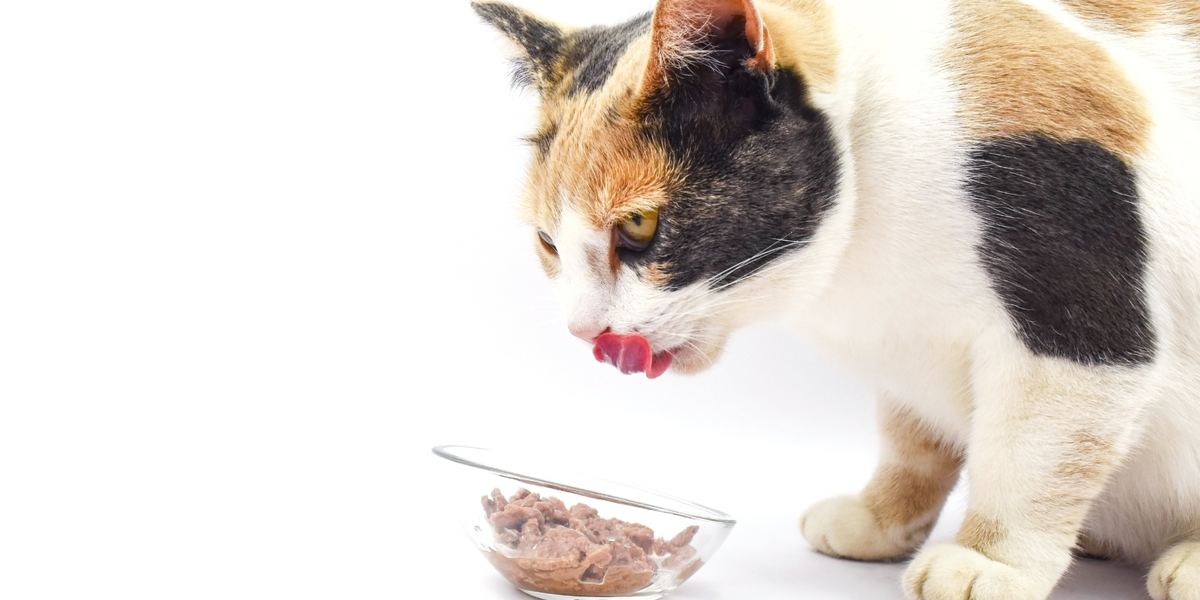
Hydrolyzed diets are made with proteins that have been through a process where they are hydrolyzed. This means the protein source is broken down into tiny pieces that the immune system won’t react to.
Ideally, these diets are also found in wet and dry formulations and are tasty for the cat. A benefit is that they are typically easy to digest so good for cats with gastrointestinal symptoms.
Home-Cooked Diets
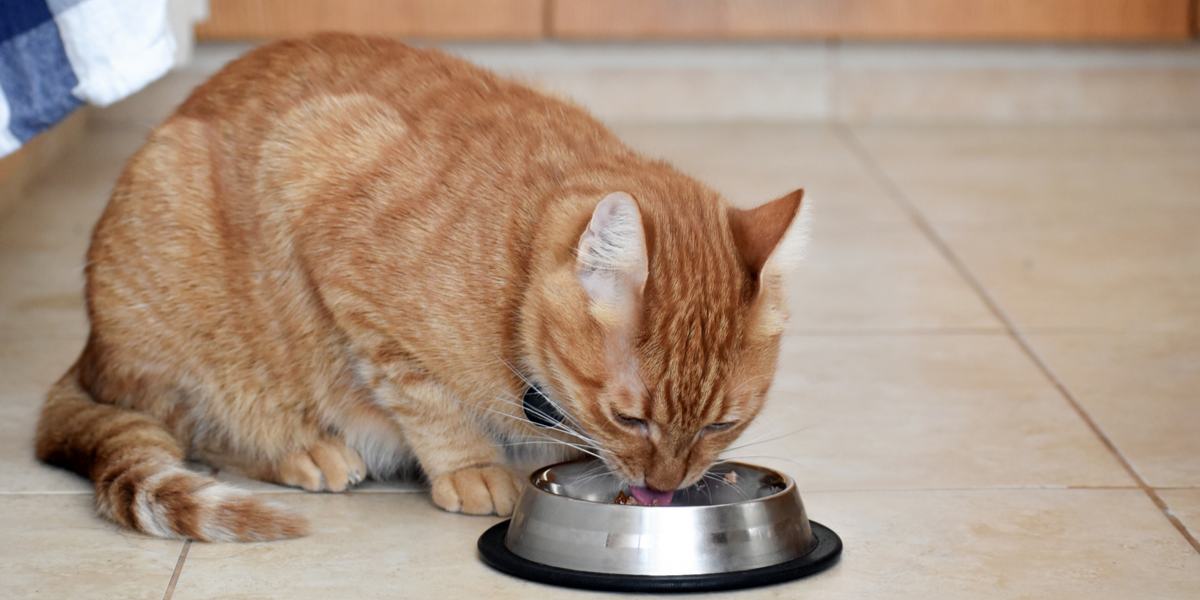
Home-cooked diets can be difficult for cats and owners alike. Many cats are extremely picky with their food and won’t eat a home-cooked meal. A home-cooked diet should always be formulated under the direction of a veterinary nutritionist since cats have very specific nutrition requirements.
Best Foods For Cats With Allergies
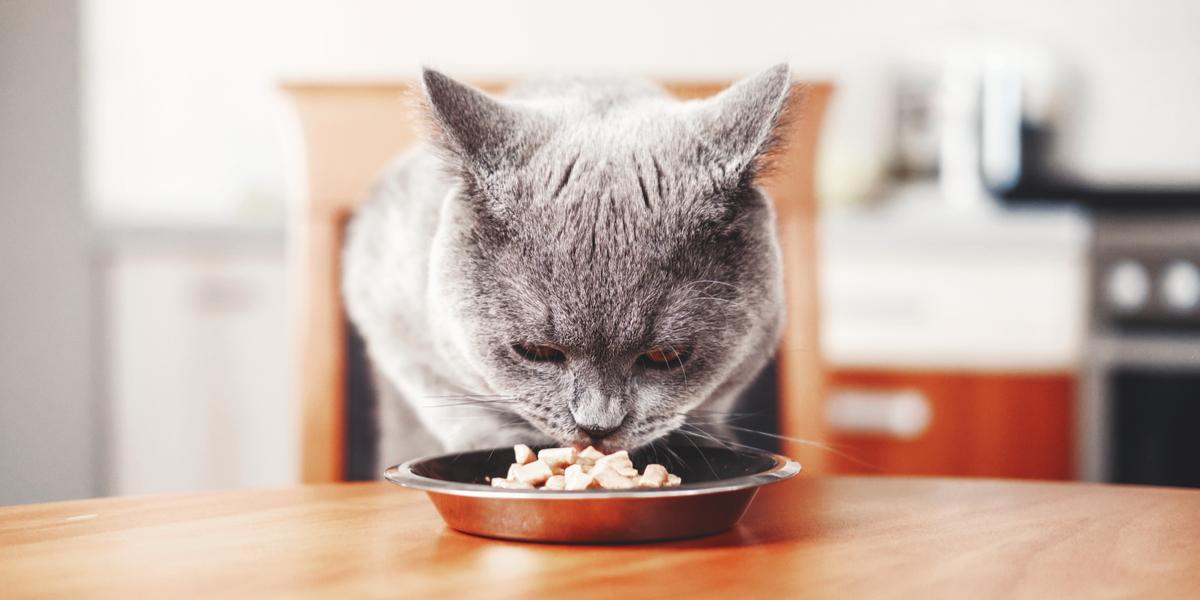
The best food for a cat with allergies is one that he or she will eat willingly and not have a reaction to. If you go through an elimination diet trial and find a food that works well for your cat, then that is what your cat should eat.
Also Read:Â Allergies In Cats: Causes, Symptoms & Treatments
It also must be a diet that is accessible both financially and commercially to you as the cat owner, or one that you can prepare for your cat under the direction of your veterinarian and veterinary nutritionist. Every cat is different in what food or foods they are allergic to. For some, it may be a protein while for others it might be a carbohydrate.
The purpose of the elimination diet is to narrow down what exactly the ingredient is, so you know what your cat needs to avoid and what is safe to feed them. In some cases, the elimination diet must be repeated multiple times for different ingredients.
Remember to always work with your veterinarian for an elimination diet, that way you have a partner to help you through it and someone to direct your questions and concerns to.
Frequently Asked Questions
What is a novel protein diet?
A novel protein diet is a diet that contains protein your cat has never been exposed to before. It is typically an uncommon ingredient that is not typically found in traditional cat food or treats.
What is the best limited ingredient cat food?
The best limited ingredient cat food is one that your cat will eat and doesn’t react to. Some of the best food allergy diets are those that are veterinary prescribed and are hydrolyzed or contain novel proteins.
What is the most common food allergy for cats?
The most common food allergies for cats are to beef, dairy, and fish. Some of the lesser common ingredients are barley, egg, lamb, pork, poultry, rabbit, and wheat.
Can I give my cat treats during an elimination diet?
Typically, no, you shouldn’t give your cat anything other than their elimination diet. This is a very strict diet and everyone in the household must abide by it, otherwise it won’t work and could be a waste of time and energy. If you must give your cat something special, consider offering them the canned food version of the special diet that is within their dietary restrictions.







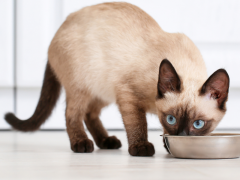
From what I’ve seen, this site is five stars all the way. Unbias (as far as I can tell) and well researched. I appreciate your recommendations for what is an overwhelming market for most cat owners. Finally we have this unique source of relevant information. There are so many new foods on the market (part of the 30 billion dollar pet industry) and they all have an angle. allaboutcats.com appears to be fact based. As an RVT, I agree with everything I’ve seen so far. I am very excited about it! Thank you allaboutcats people!!
Hi Heidi, thank you for the kind comment and support!
Hi, thank You for all the information, it is very useful! I would like to ask you something about elimination diet. We need to choose a protein source that our cat has never eaten before. Could it be also a kind of meat that our cat just tried a few times in the past but do not eat it normally? I find it quite difficult to find some meat that he has never eat before… Greetings!
I’m not a vet, but I believe it’s okay if your cat has eaten small amounts of the meat in the past—you’re just trying to get rid of the proteins to which they are regularly exposed.
Thank you so much, all your articles are very helpful and interesting , amazing work !
Our cat seams to have food allergies , we saw the vet last year and did the tests to eliminate other causes , then started an elimination diet.
We started with a mix of dry and wet food , the Royal canin anallergenic ( dry ) and theRoyal Canin Veterinary Diet Hypoallergenic Selected Protein PD LOAF Canned Cat Food ( duck and peas ) . And for a while the scraching diminised a lot , but was still a bit present . So I read for days and days on the subject, and we decided to try out the Koha Pet Rabbit au Jus canned food as she never ate rabbit before . It’s been now three weeks since we’ve started and I feel the schraching,iching is more present and persistent now . What should we do , continue the test for a few more weeks to see if the iching stops ? Or we stop now ? It is very discouraging as it’s been almost one year since her first symptoms started . I was also worried also of the carageen in the Royal Canin wet food . She is also very heavy, so we eliminated the very high calories foods and Koha seams great .
Would you have any suggestions on where to go from here, stick a bit longer with the Rabbit au Jus ?
Thank you so so much !